Whatever they would admit it or not, Austin-based group Honey and Salt have seemingly found themselves the way to create music with such different influences in each member. They manage to do so by blending their individualities into a sound that doesn’t sacrifice anything. It hasn’t been easy, to say the least. Several lineups changes, touring, and a serious of releases over the past nine years since inception has given the band room to explore and circle in on what they found suits them.
Wade Allen (guitar/vocals), Austin Sears (bass/vocals), and Benjamin Sams (drums/vocals) are back with their band’s sophomore effort, Honey and Salt. The self-titled album continues the path that the band created on their debut and elevates its higher ground. Expanding worldviews are emphasized all throughout the album, especially with all that is happening currently. The lyrical focus expresses that one singular person can still make an impact even with the insurmountable weight of political and social climates bearing down on them. Optimism is still an option within us; it’s all about finding the solace where you can.
We spoke with Allen about the band, the album, and much more.
You are in the beginning stages of touring. What has the response been like so far?
It’s been amazing! We were really gearing up for our record release show in Austin at The Sidewinder, and spent a considerable amount of energy promoting it. We were on several local Austin radio stations to promote the show (KUTX and KOOP, respectively), and it was way more successful than we anticipated. We were at capacity for the show and sold out of the Pinwheel variant for our vinyl. John Frazier of Spartan Records has been amazing promoting the album that we wanted to do justice in making our release show the best it could be!
We just played in Denton, TX at Backyard on Bell, and last night we played in Dallas for the first time at Three Links in the Deep Ellum district. Both shows were really, really good, and turnout for both shows was incredible.
What’s the story behind the band name?
The previous iteration of Honey and Salt (with myself (Wade), Danny Mee on the drums, and Jacob Saheb on the bass) decided to call the band Honey and Salt based on an amazing band that we all liked a lot called Blame Game, out of Atlanta. They had an album called ‘Honey and Salt’ and we just really liked the name, and how it fits with the music we were trying to write. It turns out the name actually comes from a Carl Sandburg poem.
The band has gone through a handful of changes since its inception. What is it about this current lineup that feels right?
To me, this is the final and best iteration of Honey and Salt with Austin Sears on the bass and vocals, and Benjamin Sams on the drums and vocals. Their energy and creativity as a rhythm section, coupled with the fact that they’re humble and genuine, gives me the freedom to focus more on vocals in which I don’t feel the need to always come up with the most complicated guitar parts (which I tried to do in the past). The creative space that they develop and take advantage of is, to me, nothing short of amazing. I’m constantly blown away by their musicianship.
I read that you were are a philosophy teacher at one time. What ultimately led you to go into music?
When I was young, I was only interested in playing music. There wasn’t a lot to do in my hometown (Devine, TX — a very small town south of San Antonio) so I just played music, both for fun on guitar and vocals, but I also played trombone and tuba throughout high school. I was actually a music major my freshman year of college and got a scholarship to play the tuba, which is hilarious when I think about it now.
I got seriously burned out on being a music major that I took a philosophy course when I was 20 (I think it was a Contemporary Moral Issues course) and became obsessed with it, to the point where I stopped playing music for several years and just devoted my time trying to go to graduate school for philosophy. To me, philosophy was liberating in that, as a child, I felt very stifled intellectually and grew up in a very religious household. After I finished my Master’s degree, I couldn’t wait to join a band again and start playing music. Hence, I started Honey and Salt within a few years after graduating.
Being as how we are living in uncertain times politically, do you feel that there’s hope coming sooner than later?
We definitely live in uncertain times politically and there are definite moments when I worry and fear for the survival of our species. It’s looking incredibly bleak out there on the political landscape, but there’s certainly reason to be hopeful.
If you look at the political movements in the last year or so, with not only the resistance movement but also the recent high school student walkout demanding change with respect to our incredibly lax gun laws, teachers striking for better pay, and other countries across Europe (and even China) taking the lead role in curbing climate change, I would say, yes, I’m definitely hopeful. There are enough good people out there that can decide to make a difference and affect change in our political system sooner rather than later.
Does your background in philosophy come out within your writing?
Absolutely it does! I think one of the reasons I got burned out on academia in philosophy is that I really, really dreaded writing hyper-academic papers in graduate school. Writing lyrics in Honey and Salt provides me with the platform to address philosophical issues of both personal and global significance, so most of the lyrical content is me waxing philosophical about things while not trying to sound pretentious.
What makes music so powerful, in your opinion?
To me, performing music is the purest sense of freedom as an artist. There’s nothing quite like the immediacy of performing songs in front of people that you’ve worked so hard on. I also think it’s one of the oldest forms of human expression, so there’s something incredibly primal and real about playing music.
As a musician, do you feel that you have to speak out against social issues that we are all facing these days?
In my opinion, I think musicians, especially if they’re given a platform to express their views, need to speak out against social issues and not stand idly by while oppressive forces seek to take control of many aspects of our lives. To me, staying silent during these times is a form of complicity. I don’t want to say musicians MUST speak out. If they don’t want to, that’s their choice, but my view is that artists cannot separate their art from socio-political issues.
How long did the album take to write and record?
We started writing new music immediately after releasing our first full length, Seams of Value, in April of 2016. Danny Mee recorded his drum parts on Seams of Value but left the band right after that. Luckily, Ben picked up the slack and actually played our album release show, even though he wasn’t even on the record!
Austin and I were incredibly impressed with Ben’s skills, and we all felt we needed to get him on some recordings. We had two singles we put out on tape in early 2017 but wrote all of the music for the new self-titled LP in the summer and fall of 2016, and the winter of 2017. We recorded 11 tracks in April and May of 2017 with Phillip Odom of Bad Wolf Recordings. He produced, engineered, and mixed the record, and he’s now working with the well-known producer, Will Yip, in Philadelphia. We’re planning on recording with him for our next EP.
I noticed a heavy dose of math-rock influence within the album. What is it that inspired you to incorporate this into the music?
We’re all fans of progressive music, and we’ve been seriously influenced by so many math rock bands throughout the years, like Hella, Tera Melos, early Maps and Atlases, and Don Caballero. I was really into punk and post-punk bands when I was in high school, but once I heard the angular guitar work of Devin Ocampo of Faraquet, I wanted to play that style of guitar in a band.
What were some of the goals that you wanted to achieve in the making of the self-titled album?
I think what we want to achieve for the self-titled album is to tour more throughout the U.S. and we want open up for bigger bands in the next year. A major goal we want to achieve is going on tour both in Europe and Japan, as I think our record will do well outside of the U.S.
Collectively, what is it that you are hoping to do musically?
We want to record more albums and push the boundaries of what it means to be in a rock band in 2018. We’re going to incorporate more styles of music in our next albums, which makes it incredibly exciting. We don’t want to regurgitate the same album over and over again, so we want to keep pushing ourselves as musicians and artists.
Honey and Salt’s self-titled album is out now. To purchase, click here.
Facebook | Bandcamp


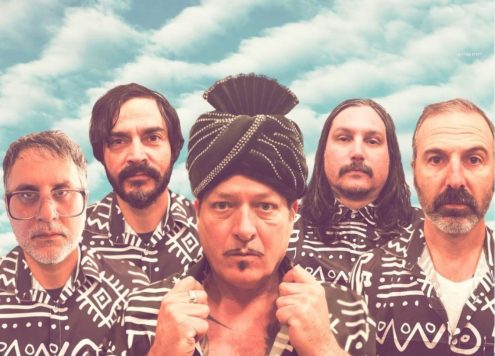
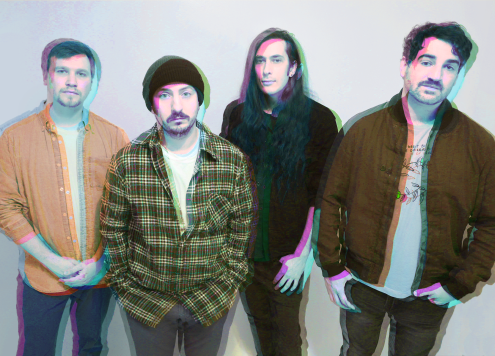
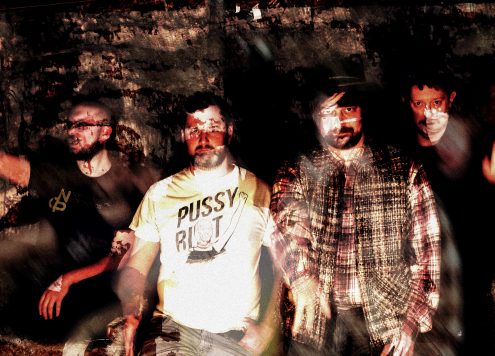

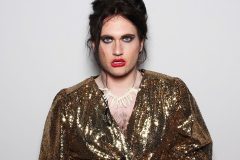
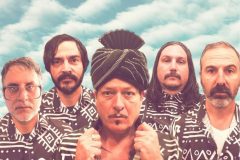
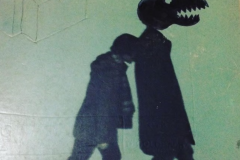
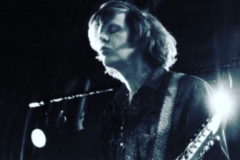

Social Media